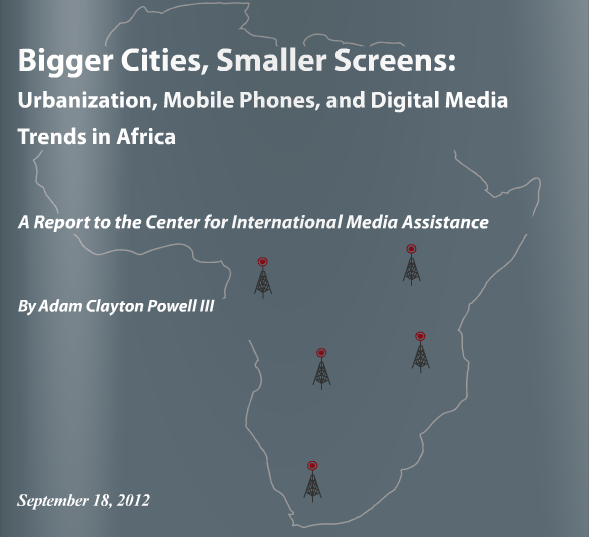 WASHINGTON – The BBC is devoting major resources to deliver its journalism to cell phones and other mobile devices because subscribers of these technologies are the most serious, committed consumers of news.
WASHINGTON – The BBC is devoting major resources to deliver its journalism to cell phones and other mobile devices because subscribers of these technologies are the most serious, committed consumers of news.
That was the assertion by Dick Meyer, Executive Producer for BBC News, America, at a CCLP forum here yesterday.
“It is our pleasure to serve them,” said Meyer, describing the mobile news audience as “more engaged.” When people watch news on television or listen to radio, he argued, they could be reading, cooking or washing the dishes. But when people are looking at news on the cell phones or a tablet, he said, they are focusing just on the content in front of them.
That is expensive, according to Meyer, because everything – text, audio (radio) and video (television) – must be reformatted “for every device” from iPads and iPhones to low-end cell phones. Indeed, for much of the BBC global audience, mobile phones are the primary medium for news and information. (See, for example, this report: CIMA-Africa Digital Media – 09-18-12.pdf on how people utilize cell phones in Africa.) 
The BBC also must spend the money to distribute its journalism for mobile devices because that is the only way to reach younger news consumers, according to Meyer. He also said that is where the BBC needed to invest in hiring to create content for small screens: “Hire a bunch of 16- to 24-year-olds and let them loose.”
Of course, Meyer is not a newcomer to digital news: Before joining the BBC, he was head of digital content at NPR, and before that was editorial director of CBSNews.com.
Meyer also presented a series of slides that he showed to his colleagues at BBC News in London to help prepare them for tonight’s election coverage. View slides here: BBC_Election_Update.pdf
The BBC will broadcast live continuous coverage of the US election returns, he said, anchored by David Dimbleby, the BBC’s primary anchor who also anchors British election returns. Meyer described Dimbleby as “the Walter Cronkite of Britain,” and said it was a mark of how closely the British follow the US that the BBC was devoting an entire evening to coverage of American election returns.
Meyer’s talk took place at a CCLP lunch forum that included journalists from Asia, Africa, Europe and the Middle East. It was part of a monthly series held in partnership with the USC Center on Public Diplomacy and the Public Diplomacy Council.
October’s forum focused on U.S. international broadcasting, and future forums are planned to detail coverage of the U.S. by China and other countries.